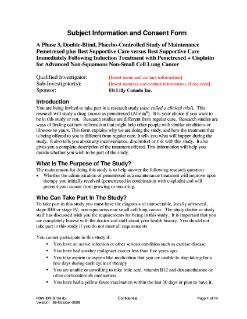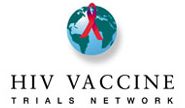Related Research Articles

Informed consent is a principle in medical ethics and medical law, that a patient must have sufficient information and understanding before making decisions about their medical care. Pertinent information may include risks and benefits of treatments, alternative treatments, the patient's role in treatment, and their right to refuse treatment. In most systems, healthcare providers have a legal and ethical responsibility to ensure that a patient's consent is informed. This principle applies more broadly than healthcare intervention, for example to conduct research and to disclosing a person's medical information.

The Tuskegee Study of Untreated Syphilis in the Negro Male was a study conducted between 1932 and 1972 by the United States Public Health Service (PHS) and the Centers for Disease Control and Prevention (CDC) on a group of nearly 400 African Americans with syphilis. The purpose of the study was to observe the effects of the disease when untreated, though by the end of the study medical advancements meant it was entirely treatable. The men were not informed of the nature of the experiment, and more than 100 died as a result.
Medical ethics is an applied branch of ethics which analyzes the practice of clinical medicine and related scientific research. Medical ethics is based on a set of values that professionals can refer to in the case of any confusion or conflict. These values include the respect for autonomy, non-maleficence, beneficence, and justice. Such tenets may allow doctors, care providers, and families to create a treatment plan and work towards the same common goal. It is important to note that these four values are not ranked in order of importance or relevance and that they all encompass values pertaining to medical ethics. However, a conflict may arise leading to the need for hierarchy in an ethical system, such that some moral elements overrule others with the purpose of applying the best moral judgement to a difficult medical situation. Medical ethics is particularly relevant in decisions regarding involuntary treatment and involuntary commitment.

Human subject research is systematic, scientific investigation that can be either interventional or observational and involves human beings as research subjects, commonly known as test subjects. Human subject research can be either medical (clinical) research or non-medical research. Systematic investigation incorporates both the collection and analysis of data in order to answer a specific question. Medical human subject research often involves analysis of biological specimens, epidemiological and behavioral studies and medical chart review studies. On the other hand, human subject research in the social sciences often involves surveys which consist of questions to a particular group of people. Survey methodology includes questionnaires, interviews, and focus groups.
An institutional review board (IRB), also known as an independent ethics committee (IEC), ethical review board (ERB), or research ethics board (REB), is a committee that applies research ethics by reviewing the methods proposed for research to ensure that they are ethical. Such boards are formally designated to approve, monitor, and review biomedical and behavioral research involving humans. They often conduct some form of risk-benefit analysis in an attempt to determine whether or not research should be conducted. The purpose of the IRB is to assure that appropriate steps are taken to protect the rights and welfare of humans participating as subjects in a research study. Along with developed countries, many developing countries have established national, regional or local Institutional Review Boards in order to safeguard ethical conduct of research concerning both national and international norms, regulations or codes.
The Declaration of Helsinki is a set of ethical principles regarding human experimentation developed originally in 1964 for the medical community by the World Medical Association (WMA). It is widely regarded as the cornerstone document on human research ethics.
Community-based participatory research (CBPR) is a partnership approach to research that equitably involves community members, organizational representatives, researchers, and others in all aspects of the research process, with all partners in the process contributing expertise and sharing in the decision-making and ownership. The aim of CBPR is to increase knowledge and understanding of a given phenomenon and to integrate the knowledge gained with interventions for policy or social change benefiting the community members.

The HIV Vaccine Trials Network (HVTN) is a non-profit organization which connects physicians and scientists with activists and community educators for the purpose of conducting clinical trials seeking a safe and effective HIV vaccine. Collaboratively, researchers and laypeople review potential vaccines for safety, immune response, and efficacy. The HVTN is a network for testing vaccines, and while its members may also work in vaccine development for other entities, the mission of the HVTN does not include vaccine design.
An ethics committee is a body responsible for ensuring that medical experimentation and human subject research are carried out in an ethical manner in accordance with national and international law.

A biobank is a type of biorepository that stores biological samples for use in research. Biobanks have become an important resource in medical research, supporting many types of contemporary research like genomics and personalized medicine.
The Office for Human Research Protections (OHRP) is a small office within the United States Department of Health and Human Services (DHHS), specifically the Office of the Assistant Secretary for Health in the Office of the Secretary of DHHS, that deals with ethical oversights in clinical research conducted by the Department, mostly through the National Institutes of Health (NIH).
A manufactured controversy is a contrived disagreement, typically motivated by profit or ideology, designed to create public confusion concerning an issue about which there is no substantial academic dispute. This concept has also been referred to as manufactured uncertainty.
Biobank ethics refers to the ethics pertaining to all aspects of biobanks. The issues examined in the field of biobank ethics are special cases of clinical research ethics.
Various organizations have created guidelines for human subject research for various kinds of research involving human subjects and for various situations.
Clinical research ethics are the set of relevant ethics considered in the conduct of a clinical trial in the field of clinical research. It borrows from the broader fields of research ethics and medical ethics.
Ellen Wright Clayton is an American Rosalind E. Franklin Professor of genetics and chairwoman of the Institute of Medicine Board at the Population Health and Public Health Practice who became a 2013 recipient of the David Rall Medal.
Vanessa Northington Gamble is a physician who chaired the Tuskegee Syphilis Study Legacy Committee in 1996.
Dynamic consent is an approach to informed consent that enables on-going engagement and communication between individuals and the users and custodians of their data. It is designed to address the many issues that are raised by the use of digital technologies in research and clinical care that enable the wide-scale use, linkage, analysis and integration of diverse datasets and the use of AI and big data analyses. These issues include how to obtain informed consent in a rapidly-changing environment; growing expectations that people should know how their data is being used; increased legal and regulatory requirements for the management of secondary use of data in biobanks and other medical research infrastructure. Dynamic Consent is a personalised, digital interface that enables two-way communication between participants and researchers and is a practical example of how software can be developed to give research participants greater understanding and control over how their data is used. It also enables clinical trial managers, researchers and clinicians to know what type of consent is attached to the use of data they hold and to have an easy way to seek a new consent if the use of the data changes. It is able to support greater accountability and transparency, streamlining consent processes to enable compliance with regulatory requirements.
The Baltimore Lead Paint Study was a controversial clinical study conducted by the Johns Hopkins Kennedy Krieger Institute (KKI) in poor Baltimorean neighborhoods during the 1990s. The purpose of the study was to investigate the health effects of lead paint in children and the effectiveness of lower cost techniques in abating lead content in residential properties. Upon discovery of the study, the study ended at the turn of the millennium and met extensive criticism for issues regarding the target population, a significant portion of which were African American children, and patient ethics such as consent regarding children and health risks when exposing subjects to cheaper but less effective health conditions. The backlash culminated in class action lawsuits against KKI by Ericka Grimes and Myron Higgins, two of the subjects representing on the order of a hundred affected children without adequate care.
References
- ↑ Strauss, R. P.; Sengupta, S.; Quinn, S. C.; Goeppinger, J.; Spaulding, C.; Kegeles, S. M.; Millett, G. (2001). "The Role of Community Advisory Boards: Involving Communities in the Informed Consent Process". American Journal of Public Health. 91 (12): 1938–1943. doi:10.2105/AJPH.91.12.1938. PMC 1446908 . PMID 11726369.
- ↑ Newman, Susan D.; Andrews JO; Magwood GS; Jenkins C; Cox MJ; Williamson DCS. (May 2011). "Community Advisory Boards in Community-Based Participatory Research: A Synthesis of Best Processes". Preventing Chronic Disease. 8 (3): A70. PMC 3103575 . PMID 21477510 . Retrieved 1 April 2012.
- ↑ Chené, R.; García, L.; Goldstrom, M.; Pino, M.; Roach, D.P.; Thunderchief, W.; Waitzkin, H. (2005). "Mental Health Research in Primary Care: Mandates from a Community Advisory Board". The Annals of Family Medicine. 3 (1): 70–72. doi:10.1370/afm.260. PMC 1466784 . PMID 15671194.
- ↑ Quinn, Sandra Crouse (June 2004). "Ethics in Public Health Research Protecting Human Subjects: the Role of Community Advisory Boards". American Journal of Public Health. 94 (6): 918–922. doi:10.2105/ajph.94.6.918. PMC 1448363 . PMID 15249289.
- ↑ National Bioethics Advisory Commission (August 1999). "Research Involving Human Biological Materials: Ethical Issues and Policy Guidance" (PDF). Retrieved 10 April 2012.
{{cite journal}}: Cite journal requires|journal=(help) See recommendation 17 - 1 2 3 4 5 6 7 8 9 10 11 Quinn, S. C. (2004). "Ethics in public health research: Protecting human subjects: The role of community advisory boards". American Journal of Public Health. 94 (6): 918–922. doi:10.2105/ajph.94.6.918. PMC 1448363 . PMID 15249289.
- ↑ Koné, A.; Sullivan, M.; Senturia, K. D.; Chrisman, N. J.; Ciske, S. J.; Krieger, J. W. (2000). "Improving collaboration between researchers and communities". Public Health Reports. 115 (2–3): 243–248. doi:10.1093/phr/115.2.243. PMC 1308719 . PMID 10968762.
- ↑ Weijer, C.; Emanuel, E. J. (2000). "Ethics. Protecting communities in biomedical research". Science. 289 (5482): 1142–1144. doi:10.1126/science.289.5482.1142. PMID 10970227. S2CID 46318657.
- 1 2 3 4 5 6 7 8 9 10 11 National Institute of General Medical Sciences (September 2000). "Report of the First Community Consultation on the Responsible Collection and Use of Samples for Genetic Research". Archived from the original on 27 April 2012. Retrieved 10 April 2012.
{{cite journal}}: Cite journal requires|journal=(help) Reproduced here verbatim. - ↑ Ntshanga, S. P.; Ngcobo, P. S.; Mabaso, M. L. H. (2010). "Establishment of a Community Advisory Board (CAB) for tuberculosis control and research in the Inanda, Ntuzuma and KwaMashu (INK) area of KwaZulu-Natal, South Africa". Health Policy. 95 (2–3): 211–215. doi:10.1016/j.healthpol.2009.12.004. PMID 20036434.
- ↑ Shubis, K.; Juma, O.; Sharifu, R.; Burgess, B.; Abdulla, S. (2009). "Challenges of establishing a Community Advisory Board (CAB) in a low-income, low-resource setting: Experiences from Bagamoyo, Tanzania". Health Research Policy and Systems. 7: 16. doi:10.1186/1478-4505-7-16. PMC 2702270 . PMID 19534798.